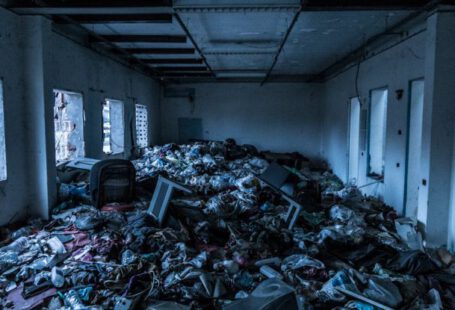Creating a Compost Bin in Your Apartment
Living in an apartment doesn’t mean you can’t participate in sustainable practices like composting. In fact, starting a compost bin in your apartment is a great way to reduce waste and create nutrient-rich soil for your plants. With a few simple steps and some basic materials, you can easily set up a composting system right in your own home.
Choosing the Right Bin
The first step in starting a compost bin in your apartment is choosing the right container. While there are many fancy compost bins available on the market, you can also repurpose items you already have at home. Look for a container that is breathable and has a lid to control odors. A small plastic bin or a large bucket with air holes drilled in the sides can work well for apartment composting.
Setting Up Your Bin
Once you have chosen a container, it’s time to set up your compost bin. Start by adding a layer of browns, such as dry leaves, shredded paper, or cardboard, to the bottom of the bin. This will help absorb excess moisture and create airflow in the compost pile. Next, add a layer of greens, such as fruit and vegetable scraps, coffee grounds, and eggshells. Alternate between layers of browns and greens to create a balanced compost pile.
Maintaining Your Compost Bin
To keep your compost bin healthy and productive, it’s important to maintain it regularly. Stir the contents of the bin every week or so to aerate the compost and prevent it from becoming compacted. If the compost is too wet, add more browns to absorb the moisture. If it’s too dry, sprinkle some water over the pile. Avoid adding meat, dairy, or oily foods to your compost bin, as these can attract pests and create unpleasant odors.
Harvesting Your Compost
After a few weeks or months, depending on the size of your compost bin and how actively you are adding to it, your compost will be ready to use. The finished compost should be dark, crumbly, and have an earthy smell. You can use it to fertilize your houseplants, garden, or balcony containers. Simply scoop out the finished compost from the bottom of the bin, being careful to leave any unfinished materials at the top to continue composting.
Troubleshooting Common Issues
While composting in an apartment is relatively simple, you may encounter some common issues along the way. If your compost bin starts to smell bad, it may be too wet or have too many greens. Add more browns and mix the contents to help balance the compost pile. If you notice pests, such as fruit flies or ants, cover the bin with a breathable cloth to keep them out. With a little troubleshooting, you can keep your apartment compost bin running smoothly.
Benefits of Apartment Composting
Composting in your apartment not only helps reduce waste and create nutrient-rich soil, but it also has other benefits. By composting kitchen scraps and other organic materials, you are diverting waste from landfills and reducing your carbon footprint. Additionally, using compost in your plants can help improve soil health and promote growth. Apartment composting is a small but impactful way to contribute to a more sustainable future.
In conclusion, starting a compost bin in your apartment is a rewarding and eco-friendly practice that anyone can do. With a bit of effort and dedication, you can turn your kitchen scraps into valuable compost that will benefit your plants and the environment. By following these simple steps and tips, you can successfully create and maintain a compost bin in your apartment, making a positive impact on the planet one compost pile at a time.





